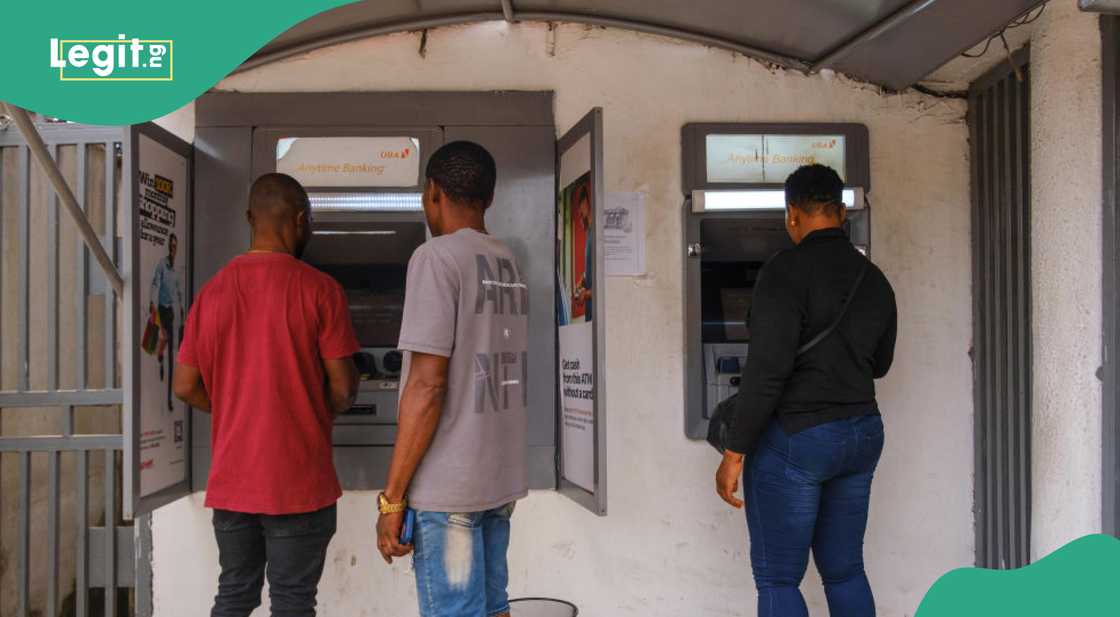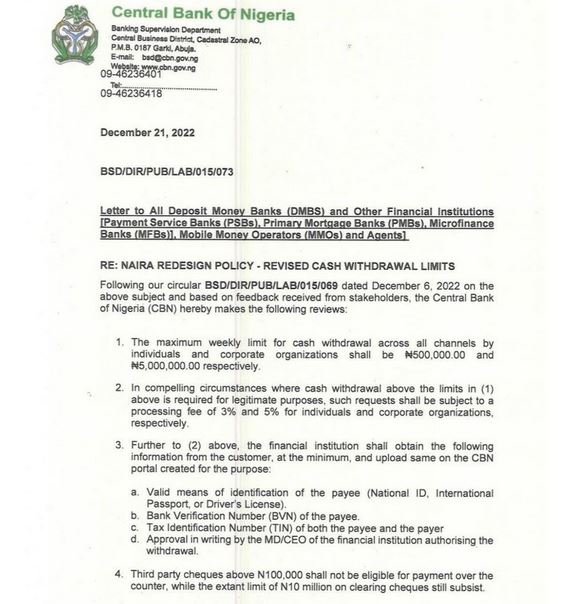- The Central Bank of Nigeria (CBN) has raised the withdrawal charges on ATMs to N100 per transaction
- The bank also increased the withdrawal limits on ATMs from N5,000 to N20,000 per transaction
- A recent CBN document disclosed that customers can avoid the new charges by patronising their bank ATMs or using PoS terminals
Legit.ng’s Pascal Oparada has reported on tech, energy, stocks, investment and the economy for over a decade.
The Central Bank of Nigeria (CBN) has increased the withdrawal charge on off-site ATMs to N100.
The new policy will become effective on March 1, 2025.
Read also:Unraveling The Age Of Pierce Brosnan A Journey Through Time

CBN lists ways to avoid N100 ATM charges
According to the CBN, any withdrawals done in ATMs other than the holder’s ATM will attract a charge of N100 per N20,000 transactions.
The bank said charges in remote ATMs, that is, those outside banking premises such as malls, shopping centres, and other places will attract the N100 charges and a surcharge of N500.
However, the apex bank disclosed that customers can avoid the N100 withdrawal charges.
In its recently released FAQs on the new policy, the bank said that customers can avoid the charges by using their bank’s ATMs, which attract zero charges or patronise Point-of-Sale (PoS) operators who charge 2.5% for every N10,000 transaction.
CBN vows to sanction banks over violations
CBN said it will penalise banks that prevent customers with sufficient funds from withdrawing up to N20,000 per transaction.
The apex bank disclosed this in a ‘FAQ in reaction to its recent review of ATM withdrawal fees.
Read also:Who Is Jennifer Aniston Currently Dating A Comprehensive Look At Her Love Life
The financial sector regulator stressed that ATM charges for withdrawals made from other banks’ ATMs, both on-site and off-site, are based on the expectation that customers can withdraw up to N20,000 per transaction.
It added that if the transaction is carried out at an off-site ATM—those located outside bank premises such as shopping malls or fuel stations—an additional surcharge of up to N500 may apply.
The CBN has also emphasised that banks cannot charge more than the prescribed fees, and any additional charges would be considered a violation.
How the new withdrawal fees affect you
The CBN has directed affected customers to file complaints against banks that impose unnecessary restrictions.
The CBN, however, recommended that customers withdraw cash from their own bank’s ATMs to prevent incurring additional fees.
It also urged customers to consider other payment methods, including mobile banking apps, POS terminals, and various digital payment options to reduce ATM withdrawal costs.
CBN increases ATM withdrawal limits
Legit.ng earlier reported that following the new N100 ATM withdrawal charges, the Central Bank of Nigeria (CBN) has raised the withdrawal limits on ATMS to N20,000.
The apex bank disclosed this in its FAQs on the newly introduced charges.
According to the CBN, Nigerian banks have been mandated to raise their withdrawal limits to N20,000 per transaction to attract the N100 charges.



